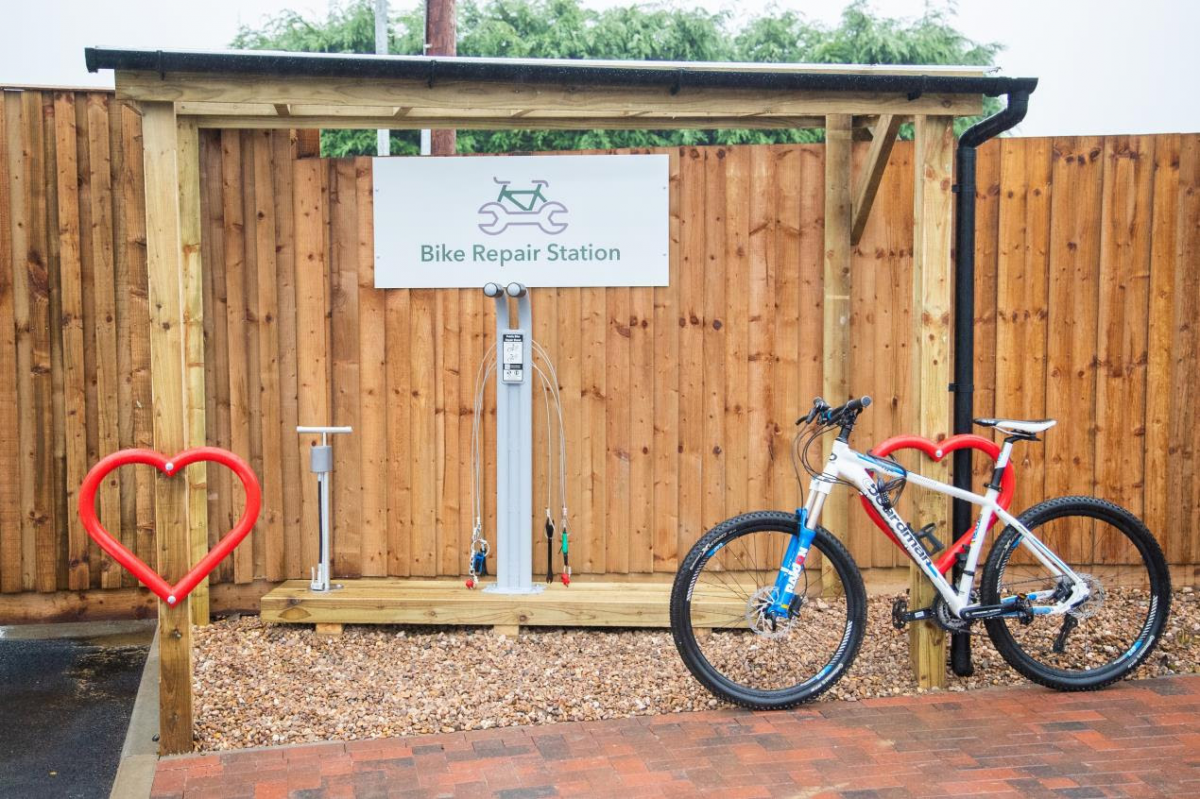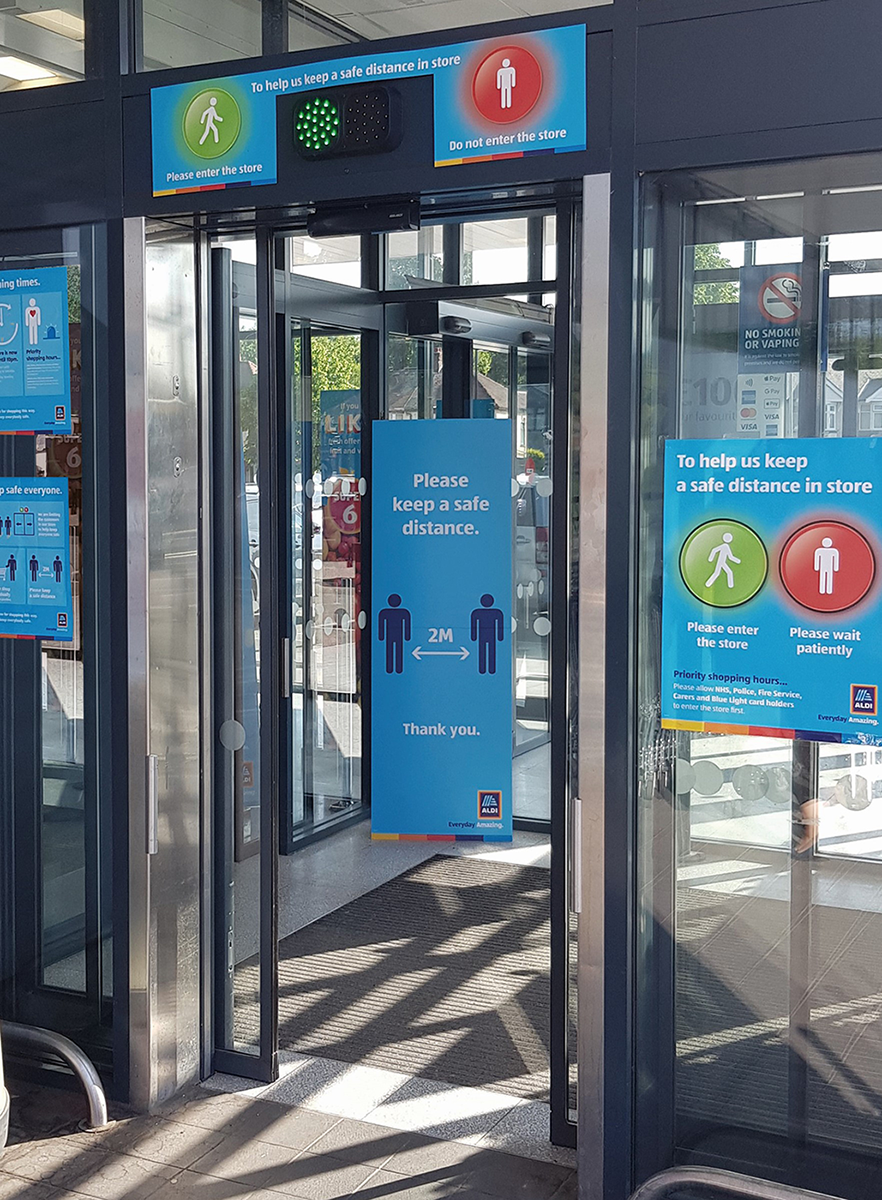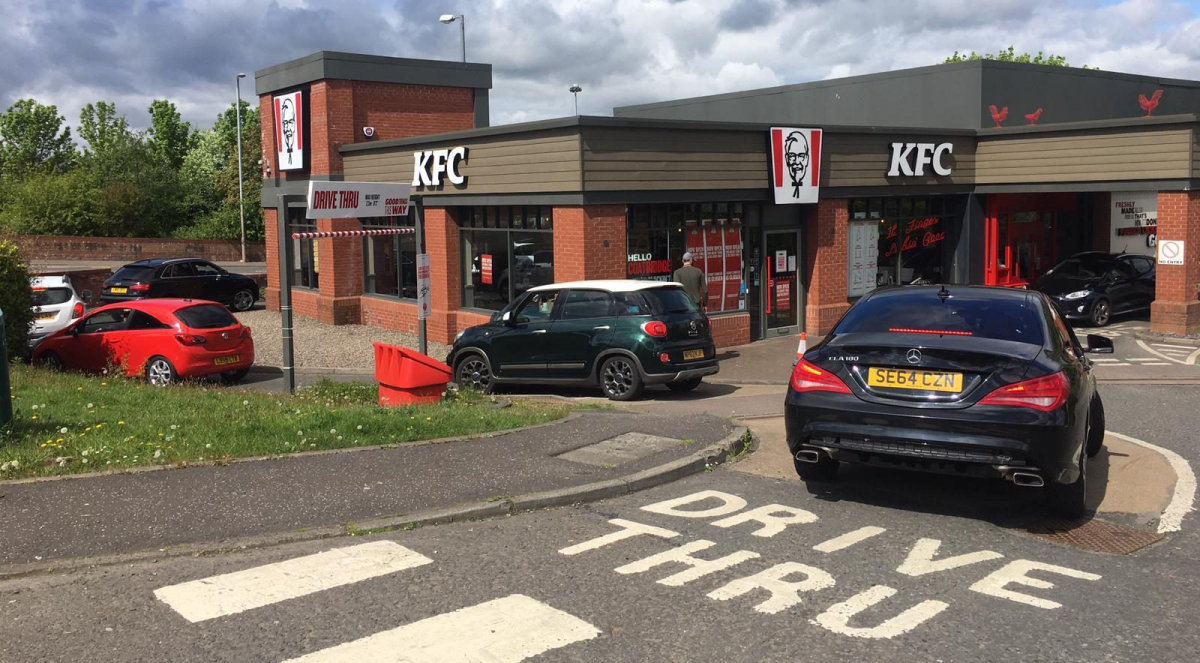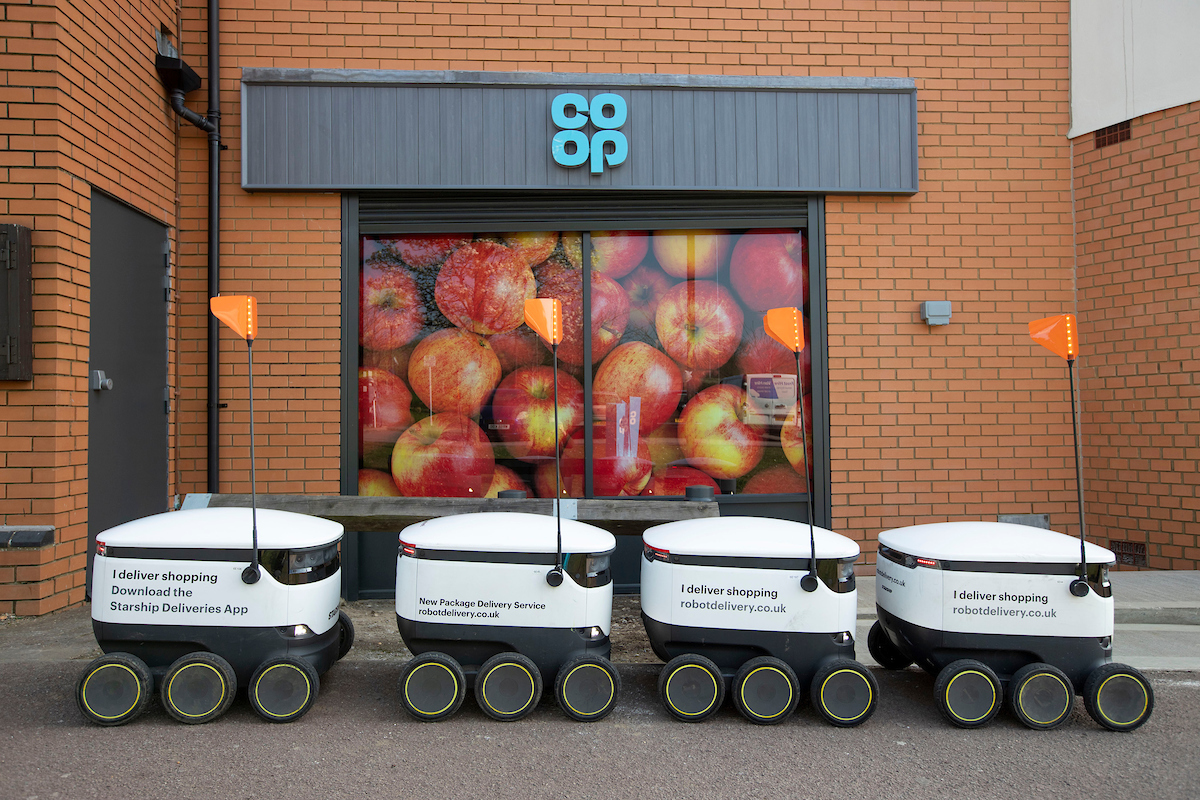While the United Kingdom remains second in the world for the most fatalities from coronavirus, the pandemic has unwittingly put community retailers and convenience stores firmly on the map for British shoppers. And, as lockdown restrictions first imposed on March 23, 2020, gradually ease, the appetite to both shop and order locally and access local produce shows no signs of letting up.
Deloitte Digital’s survey of 2,140 consumers age 16 and older in Great Britain between May 22 and 26, 2020, found three in five (59%) consumers have used more local stores and services to support local businesses during the lockdown. Further, 57% of consumers said they would be more likely to spend money at a business that offers locally produced products once the lockdown lifted than they would have done before the stay-at-home order was imposed.
 Central England Co-op is helping to encourage bicycling to work by offering free water and bicycle repair kits to commuters.
Central England Co-op is helping to encourage bicycling to work by offering free water and bicycle repair kits to commuters.
“Independent convenience stores have attracted a whole different world of loyalty and love off the back of their response to COVID,” said Dev Dhillon, a convenience and foodservice specialist. Debbie Robinson, chief executive at the Central England Co-op, agreed. “Most of our colleagues have continued to work on the front line. Society is in awe, and their status will soar as a consequence,” she said.
The organizational support behind that retail response has not gone unnoticed, Deloitte reports. It found one in five (20%) consumers have stopped using a business due to its response to COVID-19; while a similar number (19%) started using a brand as a result of its COVID-19 response, such as a business that has prioritized frontline workers or quickly introduced measures to keep employees safe.
Becky Skiles, partner and chief marketing officer at Deloitte Digital, said: “The COVID-19 pandemic has challenged brands to demonstrate their commitment to upholding the health and well-being of both their staff and their customers, while continuing to deliver products and services as safely and seamlessly as possible. Those that have done this well are seeing real benefits in terms of customer loyalty.”
Safety Measures
Convenience stores have been proactive in introducing measures to safeguard employees and customers. The Central England Co-op, for example, outlined a second phase of social distancing measures aimed at keeping people safe, including hand sanitizer stations at the front of all stores and a one-way aisle system permanently put in place. The retailer is also offering free water and bicycle repair kits for those heading back to work on their bike or by foot, in response to the government’s advice for people to walk or cycle if possible to help maintain social distancing and ease pressure on public transport.
Independent convenience stores have attracted a different world of loyalty and love off the back of their response to COVID.
“Anyone commuting to or from work can nip into one of our stores and enjoy free access to all different kinds of support, from customer toilets and water refills to special charging points and special store bike repair kits,” said Robinson. The retailer is also passionate about enacting change around colleague safety—a new survey has found a quarter of U.K. supermarket staff have experienced abuse from customers during the coronavirus outbreak. “We have shared a lot about making the environment welcoming from a customer’s perspective,” Robinson said. “That’s absolutely crucial. But there’s something that’s very close to our hearts at Central England Co-op, and it’s actually the safety of our colleagues.
“Each time there is an incident we write to our local MPs; we write to the Home Secretary, and we would be looking for a change in the law that really gives the same custodial sentence to violence against shop workers that you get from public service workers,” she said.
 An automated traffic light system at Aldi stores lets customers know when it's OK to enter to help maintain social distancing.
An automated traffic light system at Aldi stores lets customers know when it's OK to enter to help maintain social distancing.
Aldi is implementing an automated traffic light system at entrances to control the number of customers going in and out of stores. It is being rolled out nationwide, in addition to other measures. Such moves should place the businesses in good stead, with Deloitte research finding 62% of consumers are more likely to spend money at a business that takes extra steps to ensure the safety and well-being of their employees once the lockdown restrictions have lifted.
Meanwhile, the wider co-op movement will benefit from Deloitte’s finding that 46% of consumers are more likely to spend money at a business that supports local charities, such as food banks, once the lockdown is lifted.
Central Food Co-op has created a coronavirus fund, which enables Co-op members to donate unspent rewards from their membership scheme to the fund, which helps support food banks and frontline community cases, along with a funeral hardship fund.
Retailers have done a brilliant job of reacting to a sudden spike in demand by increasing their online capacity.
The funds are sorely needed, with figures from the Central Food Co-op showing food banks have recorded increases of up to 70% in the number of people accessing their services and 100%+ increases in the number of people being fed.
Online Shift
Kantar reports online shopping has attracted more grocery shoppers in 2020 than the channel has in the previous five years. “The retailers have done a brilliant job of reacting to a sudden spike in demand by increasing their online capacity, and it’s meant that nearly one in five British households ordered groceries online in the most recent four weeks (ended May 17, 2020)—1.6 million more than this time last year,” said Fraser McKevitt, head off retail and consumer insight at Kantar.
While the gains made by online shopping are unlikely to be sustained at these levels, the crisis has certainly accelerated the move toward online, McKevitt added. “The grocers have attracted a new group of customers, in particular older demographics, and we expect some of them may continue using online services,” he said.
With some consumers finding it difficult to access goods or services online during the initial lockdown period, retailers have been ramping up their delivery options. Waitrose has extended its rapid delivery service threefold to enable 7,000 households per week to book and receive up to 25 items with same-day delivery in as fast as two hours. Waitrose rolled out click and collect to an additional 70 stores by the end of May.

 KFC reopened more than 500 locations in May for contactless delivery and drive-thru service. Central England Co-op expanded its same-day delivery service using robot shuttles, which have become a key way to serve vulnerable community members sheltering at home.
KFC reopened more than 500 locations in May for contactless delivery and drive-thru service. Central England Co-op expanded its same-day delivery service using robot shuttles, which have become a key way to serve vulnerable community members sheltering at home.
Aldi has tested a home delivery service with Deliveroo, offering 150 products in as little as 30 minutes. Morrisons also forged a Deliveroo partnership, enabling customers to order 70 essential items for on-demand delivery in under 30 minutes.
But it’s not just groceries experiencing an online boom—people missing their favorite restaurants have pushed takeaway deliveries up by 250% year on year, according to Kantar. By mid-June, Pret, for instance, had opened 300 of its stores, offering takeaway plus delivery in tandem with Deliveroo, Just Eat and Uber Eats.
KFC, meanwhile, reopened more than 500 locations by May 24, reuniting fans with their favorite fried chicken via contactless delivery. EG Group, KFC’s largest European franchisee, acknowledged the latent demand for foodservice offers in the U.K.
EG Group also has been gearing up for the “new normal,” where an increasing number of shoppers will wish to access its brands digitally. In response, the business is launching a retail app, EG Club, to enable customers to access fuel foodservice, grocery and merchandise on a single digital retail platform.
For brands to build loyalty, the positive contribution they are bringing to employees and communities must be as clearly communicated as their product offering.
The pandemic has already driven a surge in delivery at EG Group and a massive shift to people wanting to use digital platforms to pre-order, pre-pay and organize delivery, reported Ilyas Munshi, EG Group commercial director. “Consumers are comfortable paying a premium for delivery to a location of their choice or even to be served at curbside,” he said. Drive-thru also has won increased traction due to COVID-19 and is now “a given,” according to EG Group, which anticipates sites with multi-lane drive-thrus becoming more prevalent in the future.
Creative Technology
Convenience retailers are extending their reach and routes to market via new technology. The Co-op is expanding its same-day, autonomous robot delivery service in the U.K., following a trial in 2018. According to the retailer, the number of customers using robot deliveries has more than doubled since the start of lockdown, with the value of transactions increasing fourfold as shopping habits change. The service is now available from eight stores and, while originally intended to offer additional choice, ease and convenience for time-pressed shoppers, it has become a “lifeline” for vulnerable or housebound members of the community.
The Co-op also has focused on developing the range of products available through robot delivery, with shoppers now able to select from around 1,000 everyday essential products and family favorites.
Jason Perry, Co-op head of online development, said: “Quality, ease and convenience is at the core of our approach, and we continue to innovate and expand access to our products online in order to offer greater flexibility and choice to meet consumer needs in our communities.”
COVID-19 has thrown everyone a curveball, but the convenience channel has demonstrated a unique ability to react and adapt.